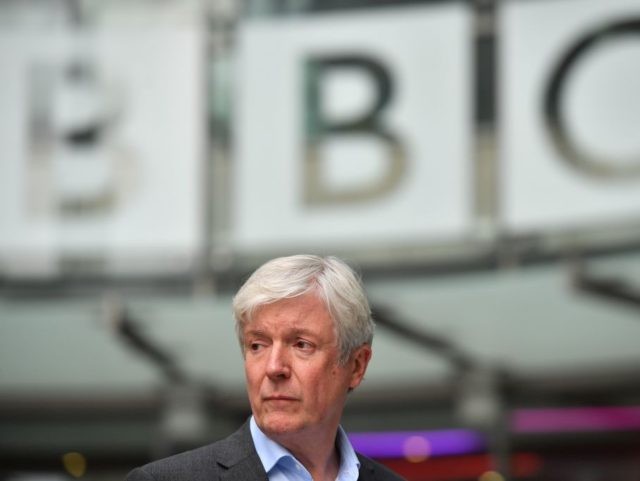The use of terms like “mainstream media” and growing distrust in “the establishment” are an “assault on freedom of expression”, the head of the BBC has claimed.
BBC director-general Lord Tony Hall said the effects of globalisation have fuelled a “progressive erosion of trust in … all those perceived as expert or elite” he complained, warning that journalism was under attack from “a crisis of faith in our traditional institutions”.
In a speech to the House of Lords this week, the 68-year-old life peer said he remembered “an age when … journalists could command the attention and respect of a whole country with the quality of their craft.”
Now, reporters for media outlets like the BBC face “attempts to target, troll [and] intimidate them” in addition to “constant anonymous threats online, simply for reporting on opinions that others might not want to hear”, he alleged.
Lamenting that “the phrase ‘mainstream media’ is now a term of abuse”, he professed to be “really worried” about public scepticism towards what he described as “traditional journalism”, insisting that these developments amounted to “more than an attack on journalists. [They amount] to a campaign to denigrate their craft”.
Major forces which “feed into this atmosphere” include a global rise in “disinformation” along with misuse of the phrase “fake news”, according to the BBC chief, who claimed he had traced the second phenomenon back to the 2016 U.S. Presidential race.
“It still felt to many of us like an act of desperation to dismiss palpably accurate stories from some of America’s most reliable media as being complete fabrications. But it worked. And now the ‘fake news’ tag is used worldwide,” Hall conplained.
Disinformation is “the weapon of choice for repressive regimes everywhere … Russia is the obvious example”, he continued, asserting that the Kremlin works “tirelessly” to “flood the world with stories, the more confusing and contradictory the better”, and uses tactics such as “sarcasm and mockery” in a bid to fuel “mass disbelief” and “encourage people to abandon the very idea of ‘truth’”.
“Fake news is now the poison in the bloodstream of our societies — destabilising democracy and undermining trust in institutions and the rule of law,” insisted Lord Hall, going on to highlight several examples of disinformation which he said sparked real-world violence and disruption to political campaigns.
Despite having singled out Russia as the “obvious” originator of so-called fake news, and pronouncing that countries across the West have seen the phenomena “distort our discourse, fuel divisions and influence voter decisions”, each example of dangerous disinformation that the lord went on to list took place in third world countries such as Nigeria.

COMMENTS
Please let us know if you're having issues with commenting.